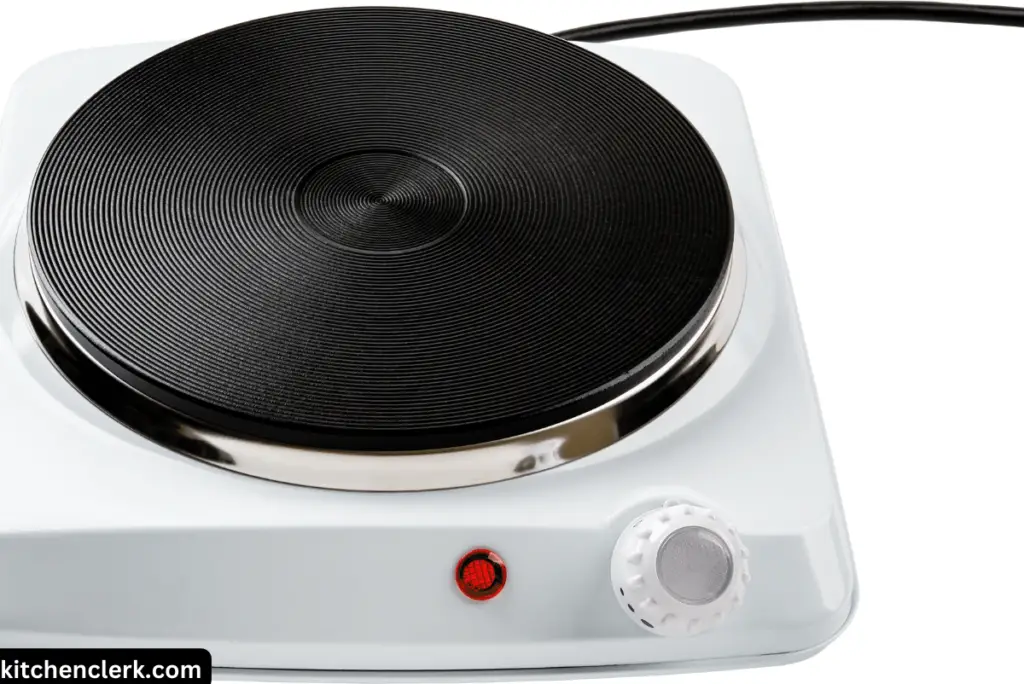Are you a student heading off to college and wondering if you’ll be allowed to use a hot plate in your dorm room? Well, you’re in the right place. As a kitchen professional with years of experience, I understand the challenges of cooking in limited spaces, and today I’ll be answering the burning question: Are hot plates allowed in dorms?
Living in a dorm often means being without access to a full-sized kitchen, making it challenging to prepare your own meals. Hot plates offer a convenient solution, allowing you to cook simple dishes right in the comfort of your dorm room.
However, before you invest in a hot plate or start cooking up a storm, it’s essential to understand the policies and regulations surrounding cooking appliances in your dorm.
In this article, I’ll provide you with all the information you need to know about using hot plates in dorms, so you can satisfy your culinary cravings while staying within the rules.
Are Hot Plates Allowed in Dorms?

Yes, hot plates may be allowed in some dorms, but it ultimately depends on the policies and regulations of your specific university. Before bringing a hot plate into your dorm room, it’s crucial to check with your dorm administration to ensure compliance with the rules.
Factors to Consider Before Bringing Hot Plates to The Dorm
1. The convenience of hot plates
Hot plates are portable, compact, and convenient cooking appliances that can be used to prepare simple meals in small spaces like dorm rooms. They are an attractive option for students who want to have some control over their meals without access to a full-sized kitchen. Hot plates come in various sizes and heat settings, allowing users to cook a range of dishes, from boiling water for pasta to sautéing vegetables.
2. Dorm policies and regulations
Before you bring a hot plate into your dorm room, it is essential to check your dorm’s policies and regulations regarding cooking appliances. Each university may have different rules to ensure all residents’ safety and well-being. Some dorms may allow hot plates with specific restrictions, while others may ban them entirely. To avoid any violations or penalties, make sure to familiarize yourself with your dorm’s guidelines.
3. Contacting Your Dorm Administration
To clarify the rules concerning hot plates, reach out to your dorm administration or housing office. They will be able to provide you with the most up-to-date information regarding cooking appliances in your specific dorm. Confirming directly with the appropriate authorities is always better rather than relying on secondhand information or assumptions.
3 Alternatives to Hot Plates
If your dorm does not allow hot plates, there are alternative appliances that you can consider to meet your cooking needs. Some popular options include:
1. Microwave ovens
Microwave ovens are a staple appliance in most dorm rooms. They allow you to heat pre-cooked meals, and frozen dishes and even cook certain foods like popcorn or oatmeal. While microwaves are not ideal for cooking full meals from scratch, they can still be handy for quick and easy meals.
2. Electric skillets or griddles
Electric skillets or griddles are another alternative to hot plates. These appliances provide a larger cooking surface area and often come with temperature control settings. They can be used to cook a variety of dishes, from pancakes and eggs to stir-fries and grilled sandwiches. Just like hot plates, make sure to check the dorm regulations before bringing these appliances into your room.
3. Instant pots or slow cookers
Instant Pots and slow cookers have gained popularity due to their versatility and convenience. These appliances allow you to cook a wide range of meals, from soups and stews to rice and pasta dishes.
They often come with safety features like auto-shutoff and pressure release valves. However, confirming with your dorm administration if these appliances are allowed is crucial, as they may have specific restrictions.
Safety Considerations
Safety should be your top priority when using any cooking appliance in a dorm room. Here are some essential safety considerations:
1. Fire hazards
Cooking appliances have the potential to cause fires if not used correctly or left unattended. Always follow the manufacturer’s instructions, never leave your cooking unattended, and ensure no flammable items are near the appliance. Additionally, be aware of any smoke alarms or sprinkler systems in your dorm room and kitchenette area.
2. Power outlet capacity
Hot plates and other cooking appliances require electricity to function. Before plugging in any device, ensure that your dorm room’s power outlets can handle the electrical load. Overloading the electrical system can lead to power outages or even electrical fires. If you have any doubts, consult with your dorm administration or a qualified electrician.
3. Proper cleaning and maintenance
Regularly clean your cooking appliances to prevent grease buildup and potential fire hazards. Follow the manufacturer’s instructions on cleaning and maintaining the appliance properly. Additionally, make sure to unplug and store the appliance safely when not in use.
Conclusion
The permissibility of hot plates in dorms depends on your university’s specific policies and regulations. Before bringing a hot plate into your room, contact your dorm administration to confirm if they are allowed and if there are any restrictions.
If hot plates are prohibited, consider alternative appliances such as microwave ovens, electric skillets, griddles, instant pots, or slow cookers. Regardless of the cooking appliance you choose, always prioritize safety and follow the guidelines provided by the manufacturer and your dorm administration.
Do you have any experience with hot plates in dorm rooms? Are there any other cooking appliances that you found useful during your time in a dorm? Share your thoughts and experiences in the comments below.
